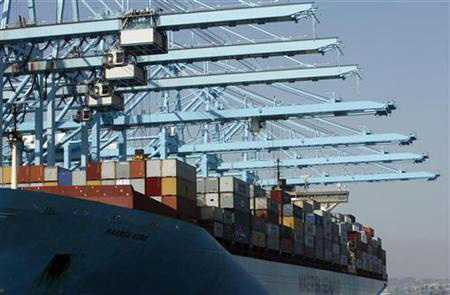
No Need to Panic Now, But Maybe Soon
I received a tip from a tech supplier here in the U.S. that the Coronavirus epidemic impacting China is a big problem getting bigger every day…and that our industry needs to think about – and prepare for – the impact on our supply chain. This week, Strata-gee surveyed several brands to learn their status on product supply…and what their perspective was on the near-term future impact of this epidemic taking place in China.
What top brands say about supply chain risk…
So, first of all, just what is the Coronavirus? According to the World Health Organization, Coronaviruses are a known class of virus that are recognized to exist in both humans and animals. Coronaviruses are zoonotic, which means they can be transmitted from animals to humans, and early reports out of China suggest this particular epidemic was spread from a bat.
Coronaviruses include some other names you may be familiar with.
“Coronaviruses (CoV) are a large family of viruses that cause illness ranging from the common cold to more severe diseases such as Middle East Respiratory Syndrome (MERS-CoV) and Severe Acute Respiratory Syndrome (SARS-CoV).”
World Health Organization website
Coronavirus is Cousin of MERS and SARS Epidemics
So while the 2019-nCoV Coronavirus is new to us all, you may recognize both MERS and SARS as epidemics the world has dealt with in the past. You probably didn’t know that they were a Coronavirus…or, at least, I didn’t know that.
You may have seen references to this current epidemic as a “novel coronavirus.” The WHO defines this as: “A novel coronavirus (nCoV) is a new strain that has not been previously identified in humans.”
Being “new” in technology is a good thing. Being “new” in a virus is not a good thing, as medicine needs to quickly find a way to deal with a rapidly emerging spreading of the disease…an epidemic.
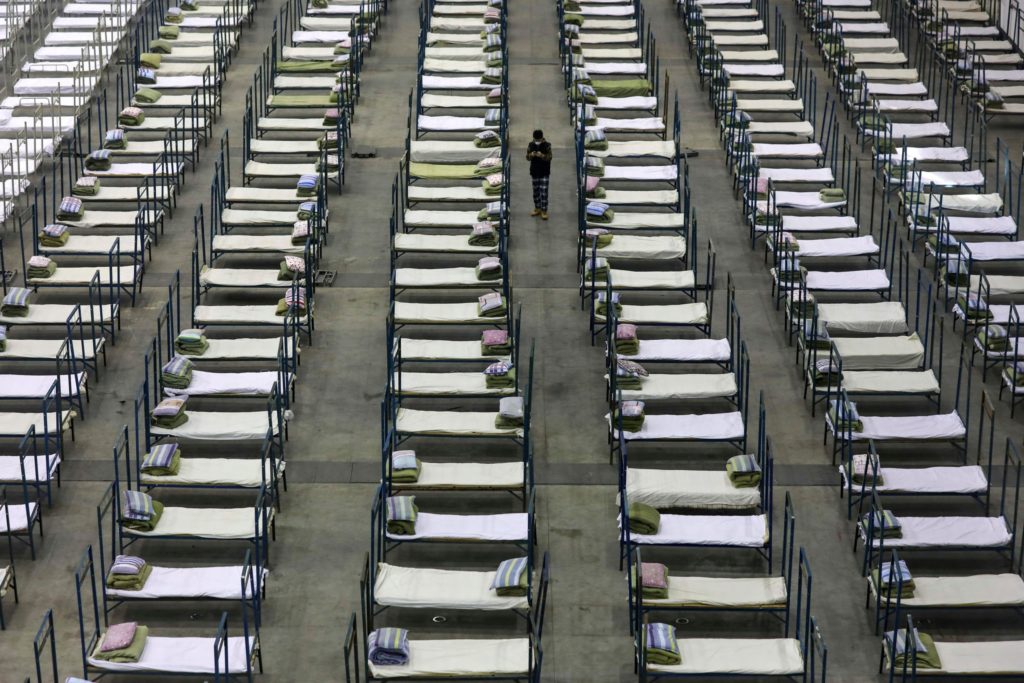
Supply Chain Impact of Coronavirus Response
However, this story is not so much about the virus and its terrible impact on the people of China (24,324 infected, nearly 500 dead according to the New York Times on Wednesday, February 5, 2020 – the day this post was written). But rather it is about something that you may not have given much consideration to – the impact that the virus-connected work stoppage and travel bans in China may have on the supply chain of products to the United States.
You may or may not already know that at this time of the year, China celebrates the Chinese New Year. Most businesses and factories close down for a period of time to celebrate the new year and prepare for the next. But now, the Chinese government has implemented travel bans and extended the business closings until at least February 10th.
Shipments Planned Months in Advance, Now at Risk
For manufacturers, who planned their production schedules months in advance, there was no way to know then that an epidemic would break out that would force an extended closing of production (and travel and shipping). So what does this mean for their ability to deliver products for sale and installation right now?
Strata-gee surveyed several brands selling technology products here that are either manufactured in China, or utilize parts or sub-assemblies from there. The short version of their response is…so far, there is no immediate problem, but depending on the length of time China is shut down – we could be facing a big problem as we head into the Spring selling season.
Will Current Work Stoppage be Extended?
You should note that one source with strong connections to China has told me that the government will be extending the shutdowns and travel bans to at least February 20th – for more than an additional week of shutdowns. I have NOT independently confirmed this extension.
Another source connected to the logistics business (not specifically technology related, but for overall goods) told me that however long China is shutdown, I should at least double the time for a return for normal. This means that if, for example, China is shutdown for a total of 8 weeks, it will take 16 weeks to return to normal. Again, this statement has not been independently verified.

Disruption Not an ‘If’…but a ‘When’
If we’re talking about sixteen weeks…we are talking four months delay to return to normal. Now I don’t know if that is going to happen…but it is safe to say that if that does happen, we will run out of goods here.
Is it possible that none of this will happen? At this point, it appears that some level of disruption is inevitable. But just how much disruption we experience is a matter of debate.
Most of the suppliers made it clear that there certainly will be – or even in some cases already is – some level of disruption. Russound’s Charlie Porritt put it succinctly: “It’s not a question of IF they [dealers and distributors] will be affected…it’s a question of WHEN.”
With that said, below are some of the responses (edited for space):
Mark Schafle, James Loudspeaker
Schafle told me that James is well positioned for a shutdown. Most of James Loudspeaker products are manufactured in the U.S., but many use drivers from China. Like some of the other manufacturers I spoke with, Schafle had already accelerated delivery of future purchase orders to avoid any issues related to the Normal Chinese New Year factory shutdown.

This means they have more than their usual level of inventory of drivers for speaker production. Schafle told me via email that “…if this [China shutdown] extends beyond the 10th [of February] it will ‘potentially’ create an issue for many in our industry.”
“I know the factory we use is shut down, administrative staffs are working from their homes and the labor force has gone home to their cities. Once the production starts up it will be mass chaos for everyone to return given the mass transit system or lack of in China and the continuing Coronavirus scare.
Mark Schafle, James Loudspeaker
Dave Nauber, Classé
Thanks to their acquisition by Sound United, Classé products are now manufactured in Japan, so they are not immediately impacted by the shutdown of factories in China. However, they do use some parts from China, a potential sticking point.
Nauber assures me that they have an ample inventory of those parts on hand such that they do not need to acquire more from China for quite some time. When I asked him how long is “quite some time,” he responded “months.”
Alex Camara, AudioControl
AudioControl is based in Seattle, WA and as I noted in a report of my visit to their facility last year, the company manufactures the bulk of their product line at that facility. This was the first thing that CEO Alex Camara pointed to as a mitigating factor when asked about the current factory shutdown in China.

However, Camara does note that there are some component parts the company uses that could be impacted by this shutdown of China factories. But this element has also seen some mitigation too, as the company considered careful purchasing, including building up extra inventory, as a result of the impact of tariffs on their business previously.
Like some of the other companies I spoke with, Camara noted that a historical quirk of the Chinese New Year is that not all workers return to their jobs after the holiday. Thanks to the impact of the Coronavirus, this might be a bigger factor this year.
“In talking to some component manufacturers there is also a concern about how fast they will get back up and running. Traditionally there is always a small percentage of workers that do not return to their place of work [after the Chinese New Year holiday break]. There is some concern from those we have spoken to that this could be much higher due to the Coronavirus and people choosing to stay longer in their home city.”
Alex Camara, AudioControl
SnapAV/Control4
SnapAV/Control4 responded to my request for information with a statement, which I reproduce in its entirety below:
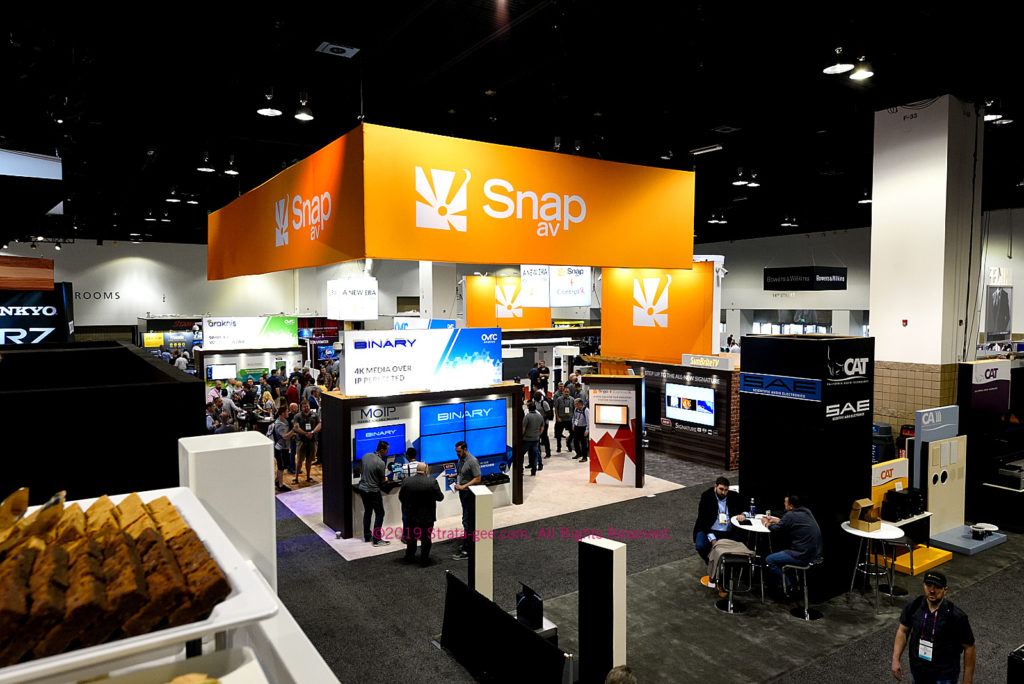
“SnapAV has both employees and suppliers operating in China, however not specifically in the Wuhan region. Note, all China-based SnapAV employees are home, safe, and healthy.
“The China Government announcement extending Chinese New Year (CNY) allowing citizens to return to work on February 10th will have minimal impact on purchase order commitments. In addition, there are (27) cities within China now locked-down through February 20th due to the coronavirus. SnapAV has (5) suppliers impacted by this extended lock-down. We are in daily contact with these (5) suppliers reviewing current US inventory position, future demand rates, open near-term and long-term purchase order delivery commitments, and risks of fulfillment of any delivery commitments. We will continue to monitor the impact zones of the coronavirus, and assess risk mitigations to minimize the impact to SnapAV customers.”
SnapAV/Control4, Statement provided Strata-gee via email
Alex Chiou, The DaVinci Group
Alex Choiu, CTO and co-founder of The DaVinci Group tells me that their suppliers have told them the government has ordered factories shuttered until February 10th. As to whether this will be extended, Chiou says, “No one knows…but it is definitely a possibility.”
In his mind, much rides on what happens in China this week. If they begin to get a handle on the spread of the virus, the government will move to keep the February 10th planned reopen date.
Chiou also agrees with my logistics source that returning to normal will take a significantly longer time…depending on the factory. In their case, TDG believes it will only take An additional two or three weeks.
One thing is for sure: “Definitely there will be an impact on inventory levels if the work stoppage gets pushed out beyond February 10th.”
Charlie Porritt, Russound
On the day I reached out to Charlie Porritt of Russound, he told me that the company had already distributed a message to their dealers and distributors about the Coronavirus situation. The company, Porritt told me, had felt it important to alert their partners about the cause and potential impact on supply chain from the events unfolding in China.
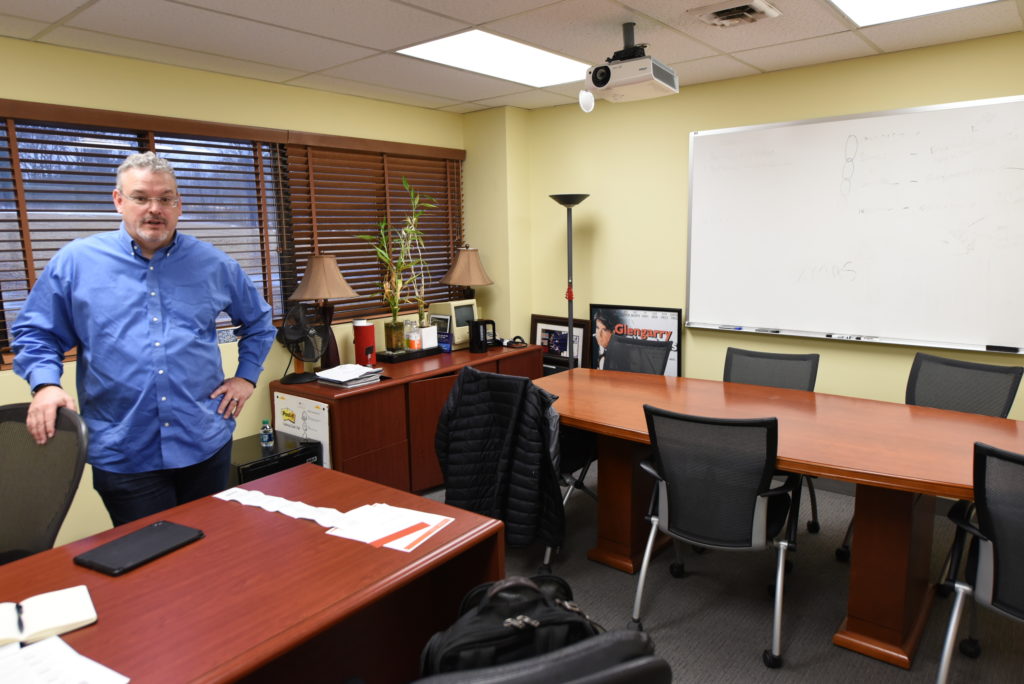
Below are select excerpts from the Russound email:
“As you are no doubt aware, China is currently undergoing a severe public health crisis with the 2019-nCoV Coronavirus and has taken unprecedented steps to help minimize the spread of the disease. Those steps include restricting public transportation and travel to/from impacted regions as well as a mandatory extension of the Chinese New Year holiday until at least next Monday, February 10th.
“These steps will impact the manufacturing and supply chain of many companies, including Russound.
“While we know that our supply chain will ultimately be impacted we do not yet know how severe that impact will be or how long the impact may last.
“While Russound currently has buffer stock of most of its key items manufactured in China, there are possibilities that individual SKUs may go on short supply or even on backorder if there are extended travel restrictions both within and to/from China, impacting the ability of our factories to meet their delivery schedules. “
Russound, “Russound – Coronavirus Update” email
“We are wildly concerned” about the deteriorating situation, Porritt told me. “We’re air freighting in stuff out of Taiwan right now” to try and mitigate the impact of the China shutdown, he added.
The company went on to suggest in their note that integrators may want to carefully consider acquiring items for installations scheduled in the near future to reduce their risk of disruption.
Gary Yacoubian, SVS Sound
“It’s definitely scary,” Gary Yacoubian of SVS Sound told me. “But right now, it feels temporary. Nobody is telling us that it is long term…but we don’t expect much production in the month of February.”
The good news for SVS is that they had already stepped up their production in the fourth quarter of 2019, building inventory. They did this for various business reasons, but that effort has the double benefit of helping gird them against a lapse in production.

“Right now we’re OK in Europe and the U.S.,” Yacoubian told me. “But this has got to get resolved.” He went on to explain that the company has already been impacted in their Asia region, which is normally served directly by their China facilities…but isn’t being served now in the wake of this situation.
Yacoubian told me he predicts that within a few weeks, China will reopen the factories, because this situation “has got to be devastating to their economy,” he said.
But, at the end of the day, “We’re in uncharted territory,” Yacoubian admitted. “This is serious and we take it very seriously. We can handle a hiccup, but more than a hiccup would not be good.”
Dr. Frederick Ampel, Technology Visions Analytics
Dr. Frederick Ampel is an industry consultant for the residential, commercial, and professional audio space that works with brands primarily on product development and launch projects. He works closely with factories around the world, including China.
Ampel told me that he has two projects in the works in China and one of them, a new product that was supposed to launch in January got pushed back to March, just based on the standard shutdown for the Chinese New Year. Now, with this extended shutdown due to the Coronavirus, the launch has been pushed back again to late April-to-early May.
Ampel notes that even projects he has outside of China in Vietnam or Malaysia have been impacted.
“Remember that most of those factories [Vietnam or Malaysia] rely on parts supplies or subassembly supplies from mainland China. Specifically, these are things like power supplies, for example. As a result, they can’t ship anything…nothing’s moving.
Dr. Frederick Ampel, Technology Visions Analytics
“It’s not just a significant annoyance, it’s a significant revenue curve impact,” Ampel said of these additional delays. “We can’t take any orders, because we don’t know when we’re going to be able to get any production.”
Mark Corbin, Vanco International
Vanco International President Mark Corbin told me that he too had heard that the production startup may be further delayed until February 20th. He also noted that compounding the situation is the fact that other factories outside of China, such as in Vietnam where he had previously moved some of his production to work around the difficult tariff situation, were also impacted.
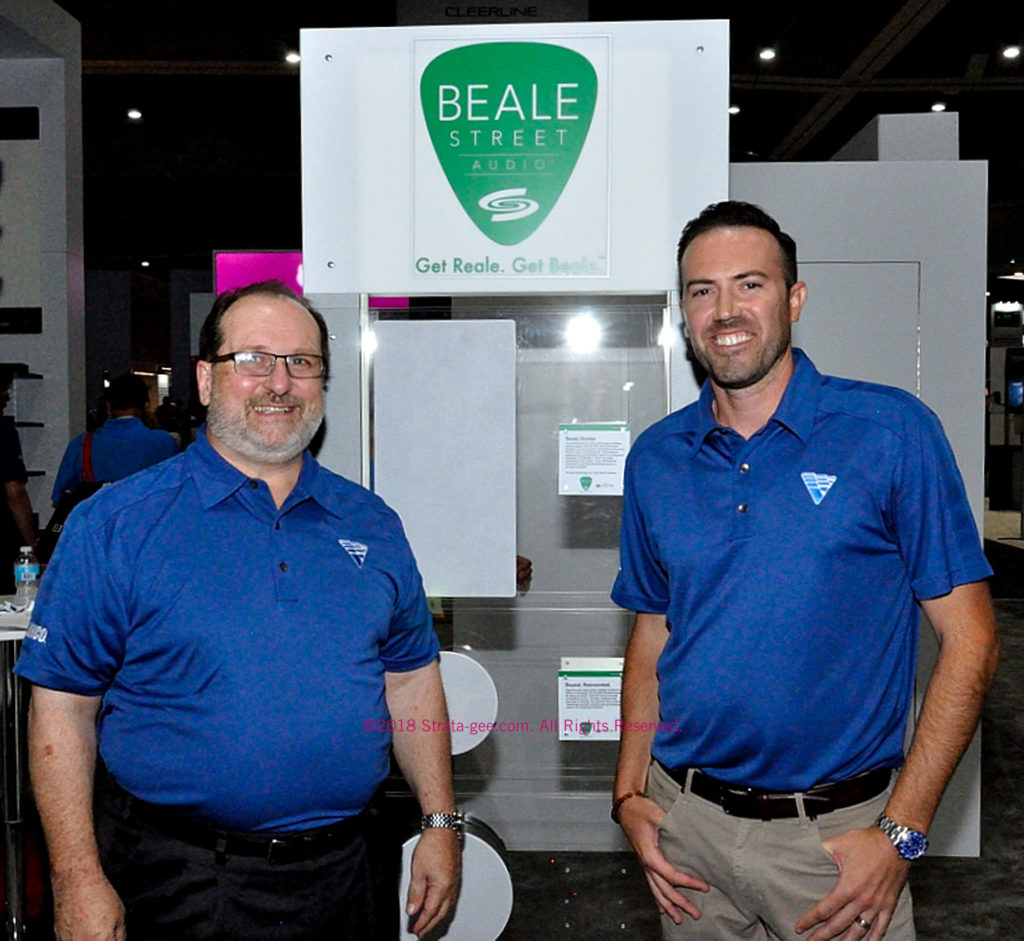
A lot of these Vietnam factories were owned by Chinese companies and had even imported many workers and managers From China to run them, Corbin tells me. But these folks returned to China for the Chinese New Year break and now are unable to return to Vietnam due to the travel ban.
“Not only are we stuck with no production, keep in mind there’s no transit right now. So we have no capability of getting raw materials [needed to restart production] anywhere – they’ve shut down trains, buses, taxis, everything. I have employees over there and they’re stuck there…and they’re freaking out.”
Mark Corbin, Vanco Intl.
Without raw materials moving to where the factories are, there will likely be a further delay in starting up production. The factories will have to wait for raw materials to arrive before they can even begin production.
Vanco, in strategically dealing with the tariff situation, had smartly built up their inventory on most of their popular items. So there’s no immediate problem there. But he says, “Our biggest problem is we’re launching 40 new products by June – well, that’s not June anymore. One of our biggest thresholds is new products to add new revenues and new technology. That’s where we’re in big trouble.”
“Right now, we’re fine,” Corbin summed up. “However, we’re concerned – and extremely concerned on our launches of any new products. If this goes out past the 20th, say another two weeks…then we could be in some trouble.”
Dan Laufman, Emotiva Audio Corp.
Emotiva founder Dan Laufman says that none of the factories he works with are in the hot zone for the Coronavirus, so they seem to be “in pretty good shape.” However, having said that, he acknowledges that “the Coronavirus is going to impact things for a while…”
February, he believes, is going to be a mess, but after that, he remains optimistic “that things will get back to normal pretty quickly.” Emotiva in particular had brought in a lot of extra inventory to help them ride out the Chinese New Year break – so that will help them ride out the storm.
“So, to sum it up, we’re planning on a rocky February, but are well positioned to weather the storm,” Laufman said.
Jeremy Burkhardt, Origin Acoustics
In an email exchange, Jeremy Burkhardt told me that so far, “All good. No issues.” Origin, he tells me, is lucky in that most of their facilities are in the south of China and out of immediate danger from direct Coronavirus impact.

However, he does hold some concern, adding: “I sure hope the CDC (Centers for Disease Control and Prevention) and the World Health Organization get a handle on this before we do have any supply chain issues.”
I think we can all agree with that sentiment.




Important article Ted, and we will know much more next week when factories are supposed to restart on the 10th. If they do, then there will be some effect, but not too much on supply as this is just a week and a half off the schedule and can be caught up though ramp up takes a bit.
If on the other hand there is further delay, or some areas are still in quarantine then the effect will hit this quarter for sure and perhaps more. It is to be seen.
As we surely do not yet know the full effects of the virus, its actual spread and mortality rate caution will rule. There are some very good signs.,
NCov does not appear to have a very high mortality rate. We must remember that some 200,000 die of flu each year, but we have no global panic though we have a pandemic.
Efforts on vaccine seem promising, but that is for next year as it is likely this may be a yearly outbreak like other coronaviruses.
We can all hedge ahead of the New Year as you report, and alter our buying plans to offset some of the effects. I am sure this will not be a very long term issue, but it may be with us for a while yet.
I surely hope all of our friends and partners are well and safe. That is the most important thing. The rest we can fix.